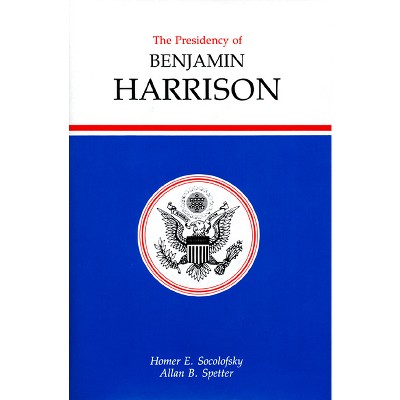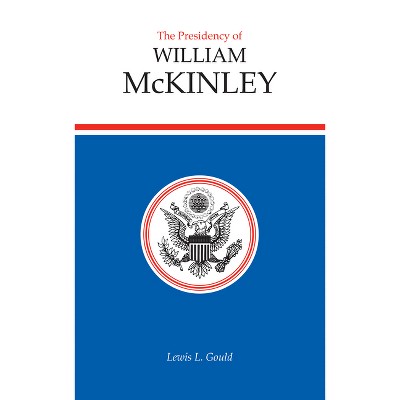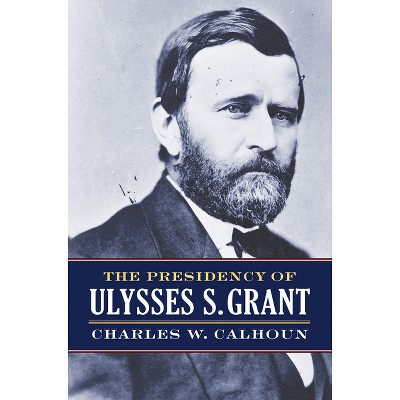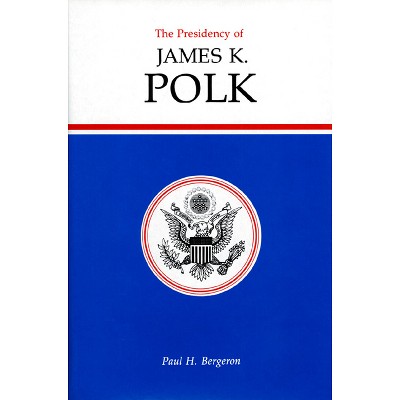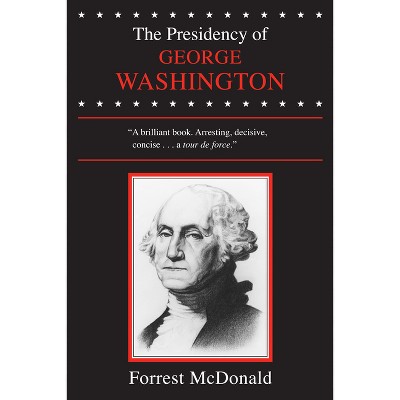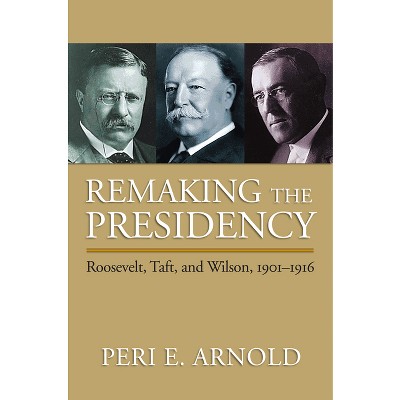Sponsored

Presidencies of Grover Cleveland - (American Presidency) by Welch (Hardcover)
$49.99Save $5.00 (9% off)
In Stock
Eligible for registries and wish lists
Sponsored
About this item
Highlights
- Grover Cleveland, who served as both the twenty-second and the twenty-fourth president of the United States, dominated the American political scene from 1884 to 1896.
- Author(s): Welch
- 280 Pages
- History, United States
- Series Name: American Presidency
Description
About the Book
Grover Cleveland, who served as both the twenty-second and the twenty-fourth president of the United States, dominated the American political scene from 1884-1896. Viewed at one time as a monument of presidential courage, Cleveland has over the past generation been dismissed by historians as a "Bourbon democrat," the symbol of that wing of the Democratic party devoted to preserving the status quo and protecting the interests of the propertied. In this revisionist study, Richard Welch takes a fresh look at the Cleveland administrations and discovers a man whose assertive temperament was frequently at odds with his inherited political faith.Book Synopsis
Grover Cleveland, who served as both the twenty-second and the twenty-fourth president of the United States, dominated the American political scene from 1884 to 1896. Viewed at one time as a monument of presidential courage, Cleveland has over the past generation been dismissed by historians as a "Bourbon Democrat," the symbol of that wing of the Democratic party devoted to preserving the status quo and protecting the interests of the propertied. In this revisionist study, Richard Welch takes a fresh look at the Cleveland administrations and discovers a man whose assertive temperament was frequently at odds with his inherited political faith. Although pledging public allegiance to a Whiggish version of the presidency, Cleveland's aggressive insistence on presidential independence led him to exercise increasing control of the executive branch and then to seek influence over Congress and national legislation. Quick to denounce governmental paternalism and the centralization of political power, Cleveland nevertheless expanded the authority of the national government as he revised federal land and Indian policies in the West and ordered the army to Chicago during the 1894 Pullman strike. For all his fears of constitutional innovation, he was neither a champion of big business nor unaware of the problems posed by the post-Civil War economic revolution. He signed the Interstate commerce Act, warned against the growing power of industrial combination, advocated voluntary federal arbitration of labor-management disputes, and fought the monopolization of western lands by railroad an timber corporations. Welch places Cleveland's battles on behalf of tariff revision, civil service reform, and the gold standard within the context of the conundrum of a strong president who usually failed to gain the cooperation of Congress or the Democratic party. Cleveland reinvigorated the American presidency and reestablished an equilibrium between the executive and legislative branches of the federal government, but by his obdurate enmity to the silverites and the "agrarian radicals," he helped assure the division and defeat of his party in the election of 1896. Welch demonstrates that Cleveland's achievements and failures as a political leader were attributable to an authoritarian temperament that saw compromise as surrender. Two chapters of the book are devoted to Cleveland's diplomacy, focusing especially on his response to Hawaiian and Cuban revolutions and the boundary dispute between Venezuela and Great Britain. Welch takes issue with the currently popular thesis that U.S. diplomacy in the last decade of the nineteenth century displayed a concerted governmental effort to solve domestic economic problems by expanding foreign markets in East Asia and Latin America. In addition to providing insights into the character of one of our more interesting presidents, this reassessment of Grover Cleveland's historical legacy shows clearly that the Cleveland years served as the essential preface to the development of a modern presidency and to the identification for executive power.Review Quotes
"A useful interpretive reassessment."--Choice
"This work is highly recommended for all academic libraries and large public libraries."--Library Journal
"This richly detailed narrative . . . reveals not a blind servant of the interests but a president sincerely trying to strike a middle course of limited reforms."--Robert Kelley, author of The Cultural Pattern in American Politics
Dimensions (Overall): 9.26 Inches (H) x 6.26 Inches (W) x 1.01 Inches (D)
Weight: 1.27 Pounds
Suggested Age: 22 Years and Up
Number of Pages: 280
Genre: History
Sub-Genre: United States
Series Title: American Presidency
Publisher: University Press of Kansas
Theme: 19th Century
Format: Hardcover
Author: Welch
Language: English
Street Date: June 20, 1988
TCIN: 94475862
UPC: 9780700603558
Item Number (DPCI): 247-05-5263
Origin: Made in the USA or Imported
If the item details aren’t accurate or complete, we want to know about it.
Shipping details
Estimated ship dimensions: 1.01 inches length x 6.26 inches width x 9.26 inches height
Estimated ship weight: 1.27 pounds
We regret that this item cannot be shipped to PO Boxes.
This item cannot be shipped to the following locations: American Samoa (see also separate entry under AS), Guam (see also separate entry under GU), Northern Mariana Islands, Puerto Rico (see also separate entry under PR), United States Minor Outlying Islands, Virgin Islands, U.S., APO/FPO
Return details
This item can be returned to any Target store or Target.com.
This item must be returned within 90 days of the date it was purchased in store, shipped, delivered by a Shipt shopper, or made ready for pickup.
See the return policy for complete information.
Trending Non-Fiction

$15.68
Buy 2, get 1 free select books
4.7 out of 5 stars with 182 ratings

$19.31
was $20.98 New lower price
Buy 2, get 1 free select books
4.1 out of 5 stars with 54 ratings

$19.58
MSRP $29.00
Buy 2, get 1 free select books
4.7 out of 5 stars with 11 ratings

$4.59
MSRP $7.99
Buy 2, get 1 free select books
4.8 out of 5 stars with 116 ratings

$6.20
MSRP $10.95
Buy 2, get 1 free select books
4.8 out of 5 stars with 33 ratings

$7.09
MSRP $9.99
Buy 2, get 1 free select books
4.9 out of 5 stars with 45 ratings
